Within the framework of the EDS-IEEE Summer School, engineering is brought closer to the public
Puebla, Pue., June 29. With the inauguration of the IEEE Electron Devices Society (EDS) Region 9 Summer School, and the development of the event "Open Engineering for Citizenship", this day began the activities associated with the Latin American Conference on Electronic Devices (LAEDC) 2023.
LAEDC 2023 is organized by the National Institute of Astrophysics, Optics and Electronics (INAOE), a public research center of Conahcyt, EDS and IEEE in collaboration with the Universidad de los Andes (Uniandes), of Colombia, and with the support from various international sponsors. This is the most important ESD conference in Latin America.
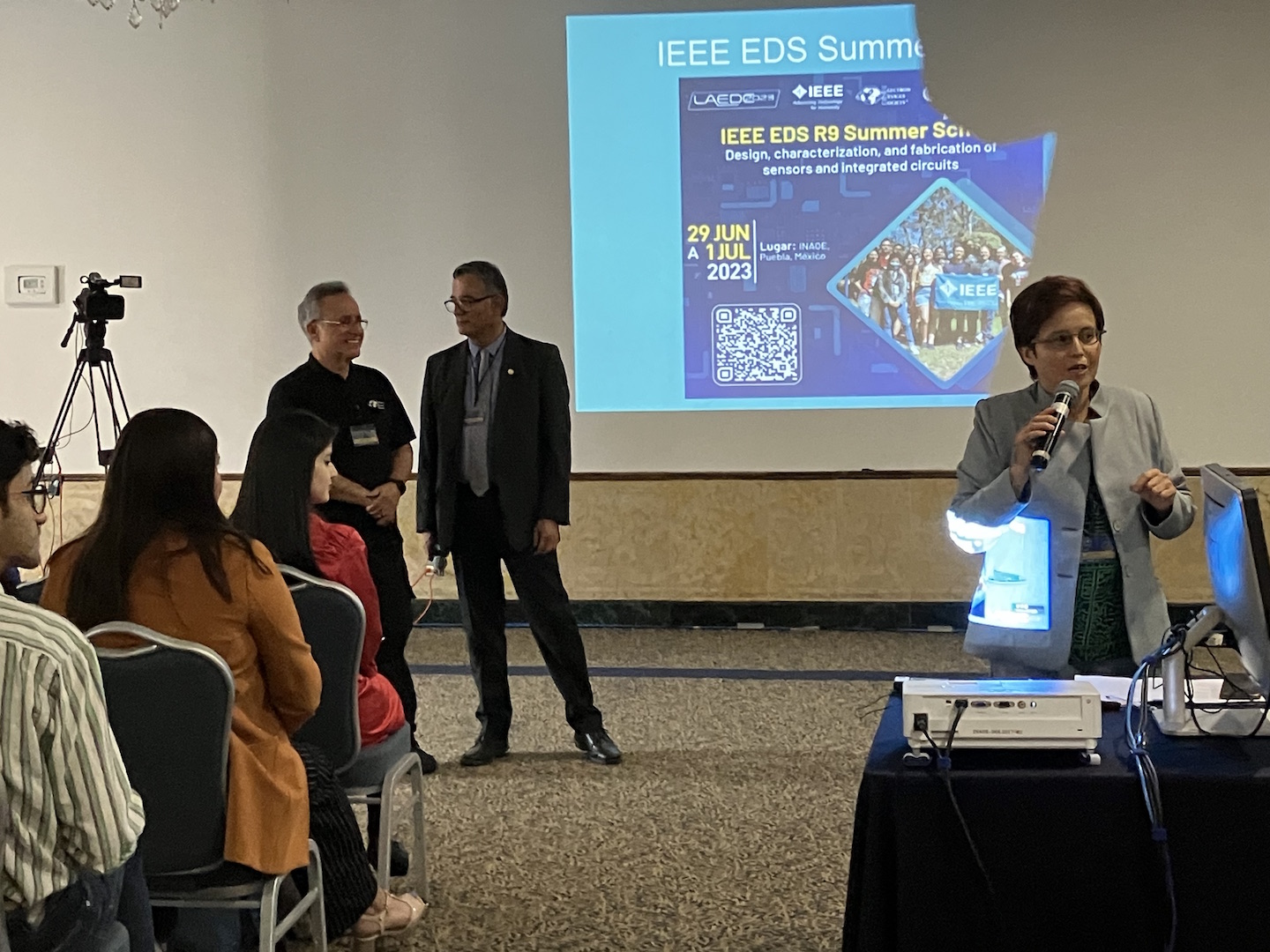
The School began at half past eight in the morning with a welcome message by Dr. Alba Ávila Bernal, a Uniandes researcher, who briefly recounted the School's program. Doctors Edmundo Antonio Gutiérrez Domínguez, General Director of INAOE, and Fernando Guarín, from EDS-IEEE, were also at the protocol ceremony.
In his message to more than 140 international students, Dr. Guarín said that with the pandemic and more recently, the world realized the importance of chips, how they have transformed our lives and how they influence society and can contribute to address challenges such as climate change, sustainable agriculture, clean energy generation, etc.
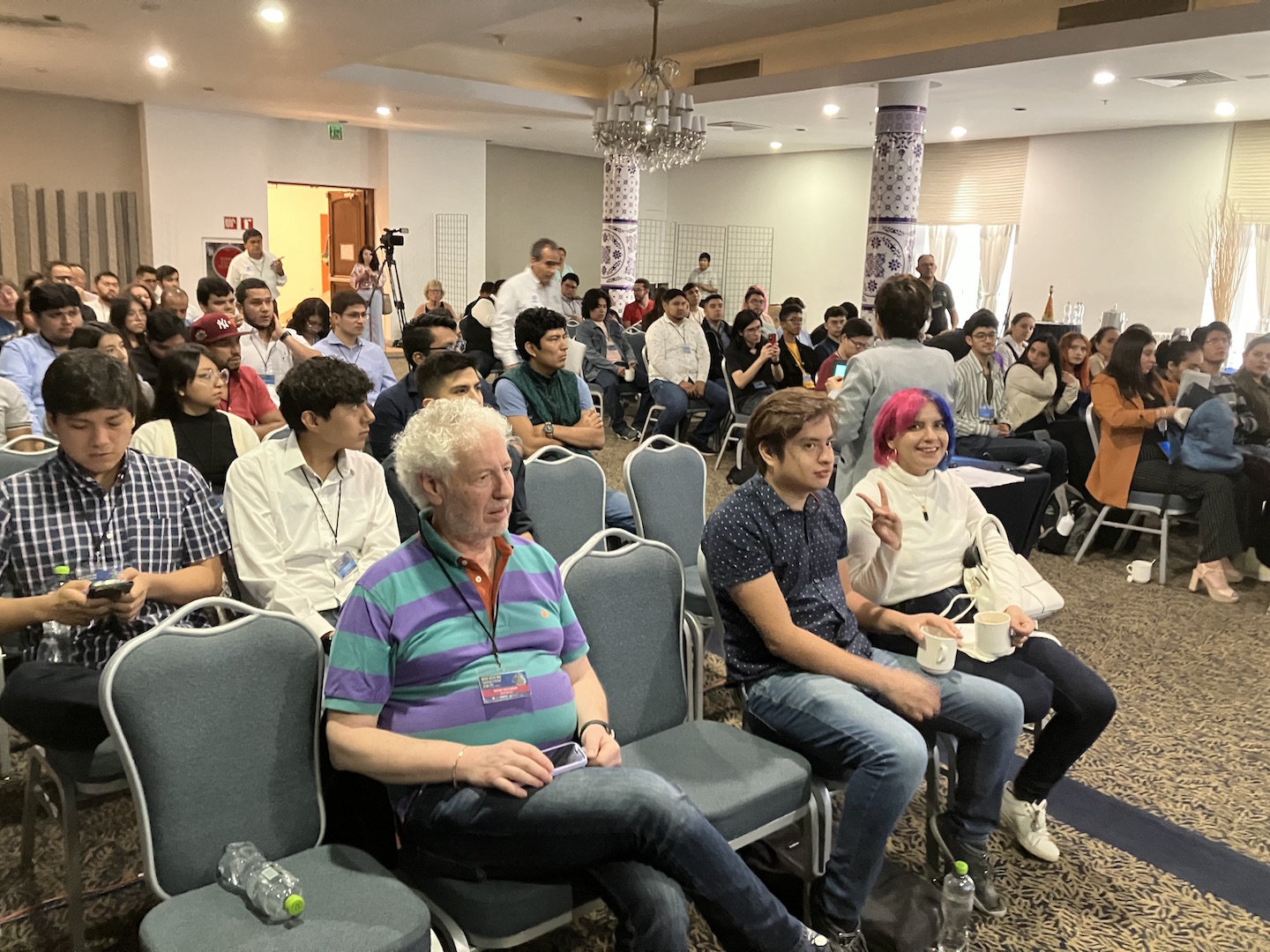
He added that we live in a situation in which the United States, the European Union, India and China are allocating billions of dollars to promote the semiconductor industry. “This situation will bring great opportunities. In Latin America we continue to depend on coffee, sugar cane, corn, that is, we have had the same economies that we had since the 1800s. Nowadays, the important thing is the knowledge economy, that is why it is important the training in the area of integrated circuit design as a great differentiator. I hope you can get the most out of this course,” he stressed.
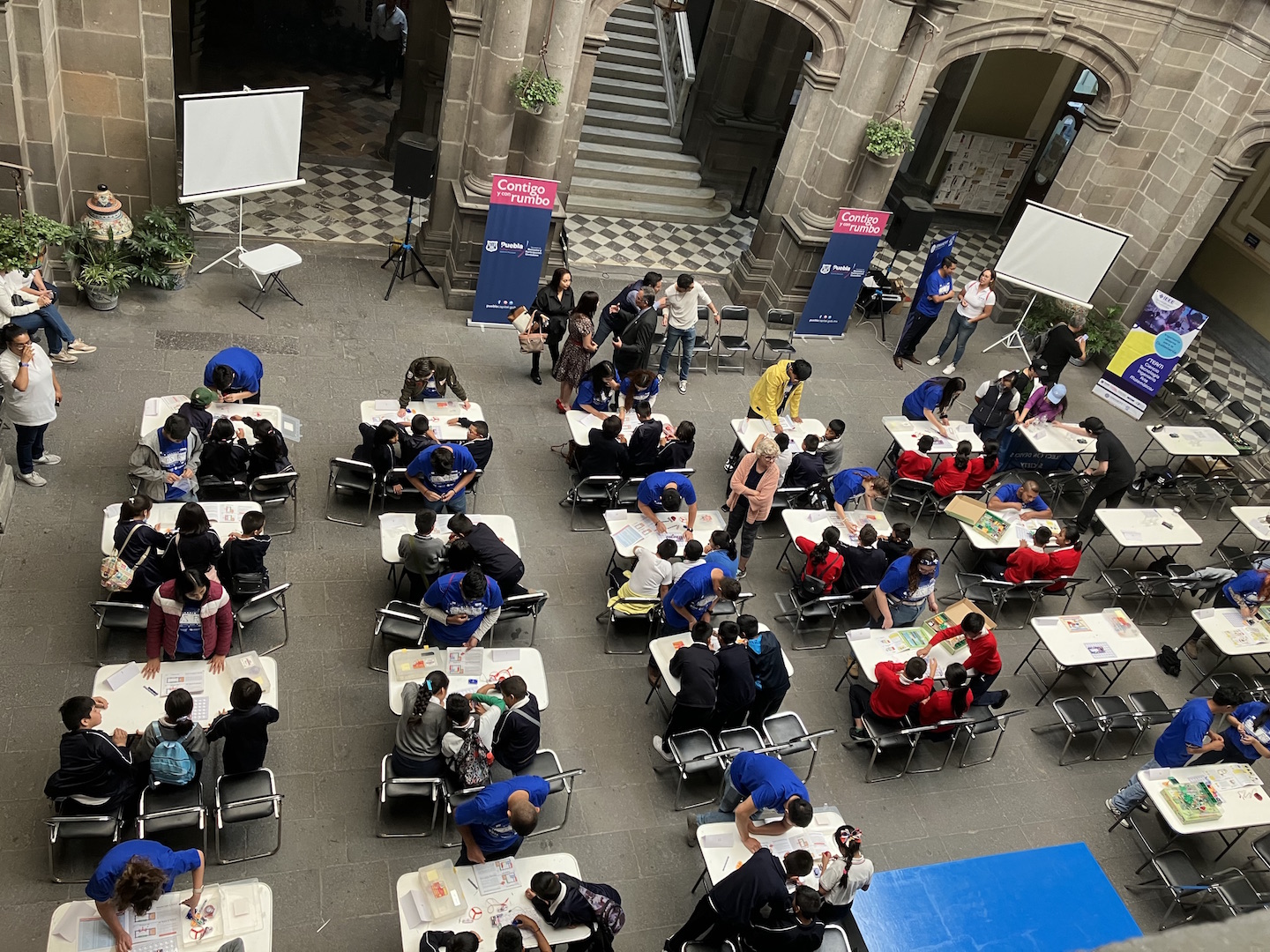
For his part, Dr. Edmundo Antonio Gutiérrez Domínguez asserted that today Latin America must play an important role because the global semiconductor crisis is so great that neither Europe nor the United States alone can solve it: "Here you are to take advantage of this opportunity and multiply and amplify it with your friends and colleagues in the rest of the continent”.
INAOE, he added, is one of the few Latin American centers that have the capacity to manufacture semiconductor devices and integrated circuits. “We don't have a technology that can compete with the manufacture of microprocessors, but we do have the opportunity to influence other fields, such as sensors. This is a great area of opportunity. This summer course is aimed at understanding how these sensors work, how we can manipulate materials on an atomic scale to make them more efficient and detect biological, chemical or physical variables and in turn integrate these materials into an integrated circuit manufacturing process. This capacity exists in Mexico, it is located at INAOE, in the Laboratory for the Manufacture of Semiconductor Devices and Integrated Circuits with a 0.8 micron CMOS technology, which is not a dimension that attracts attention in the field of microprocessors but for the field of microprocessors design and manufacture of sensors to which we can add the electronics to make them intelligent”.
The Summer School will last three days, one of which will be dedicated to visiting INAOE.
Open Engineering for Citizens
On the other hand, at 10 in the morning the Open Engineering for Citizenship event was inaugurated at the Municipal Palace. This event seeks to bring girls, boys and adolescents closer to the areas of science, technology, engineering, art and mathematics (STEAM).
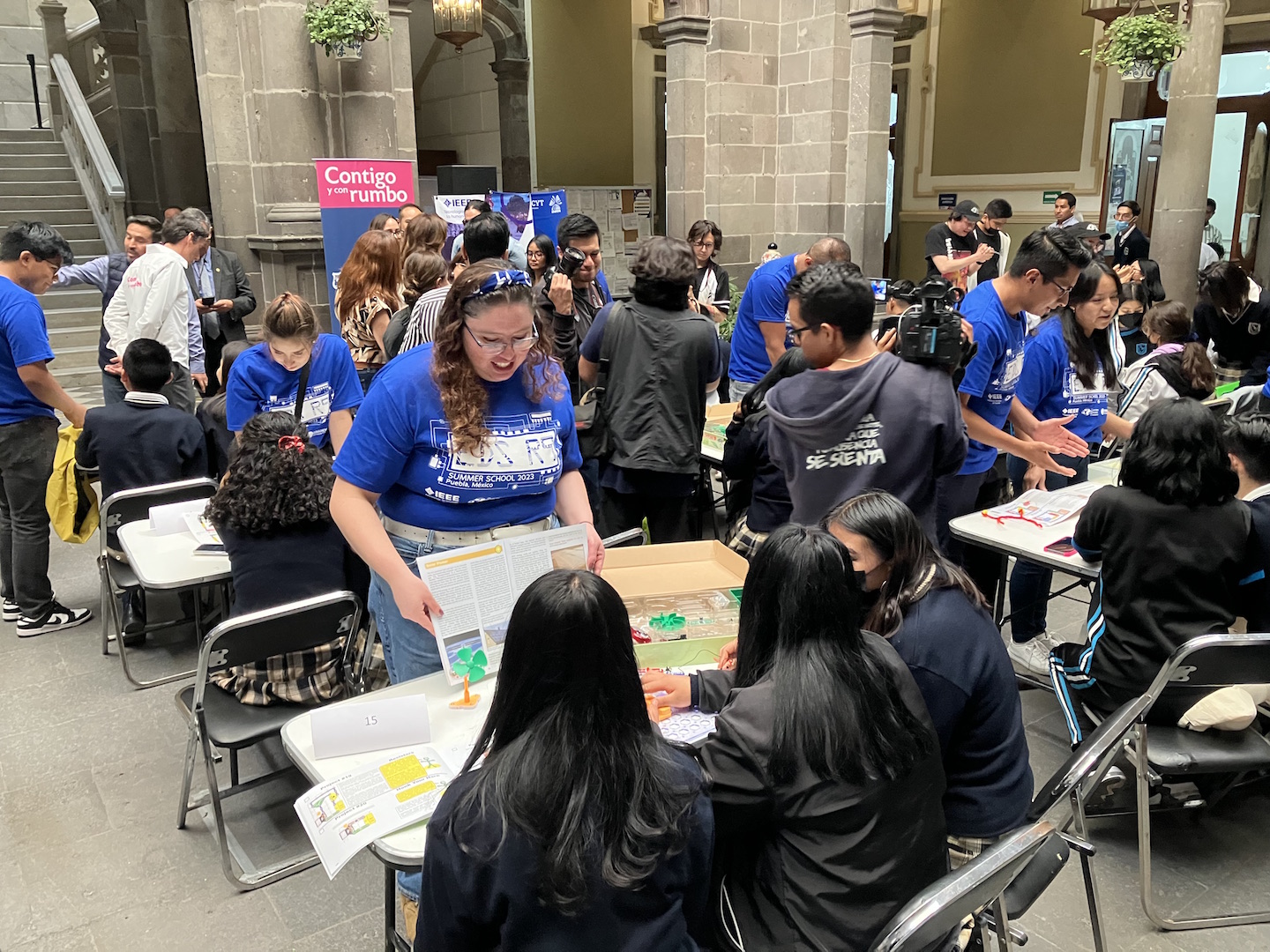
In the event – organized by INAOE, the Puebla City Council through the Ministry of Welfare, Uniandes and EDS-IEEE – more than 300 students of different levels learned about Electronics with some kits, observed the Sun with filtered telescopes and learned about the night sky in a traveling planetarium. Some activities were adapted to serve people with blindness and low vision.
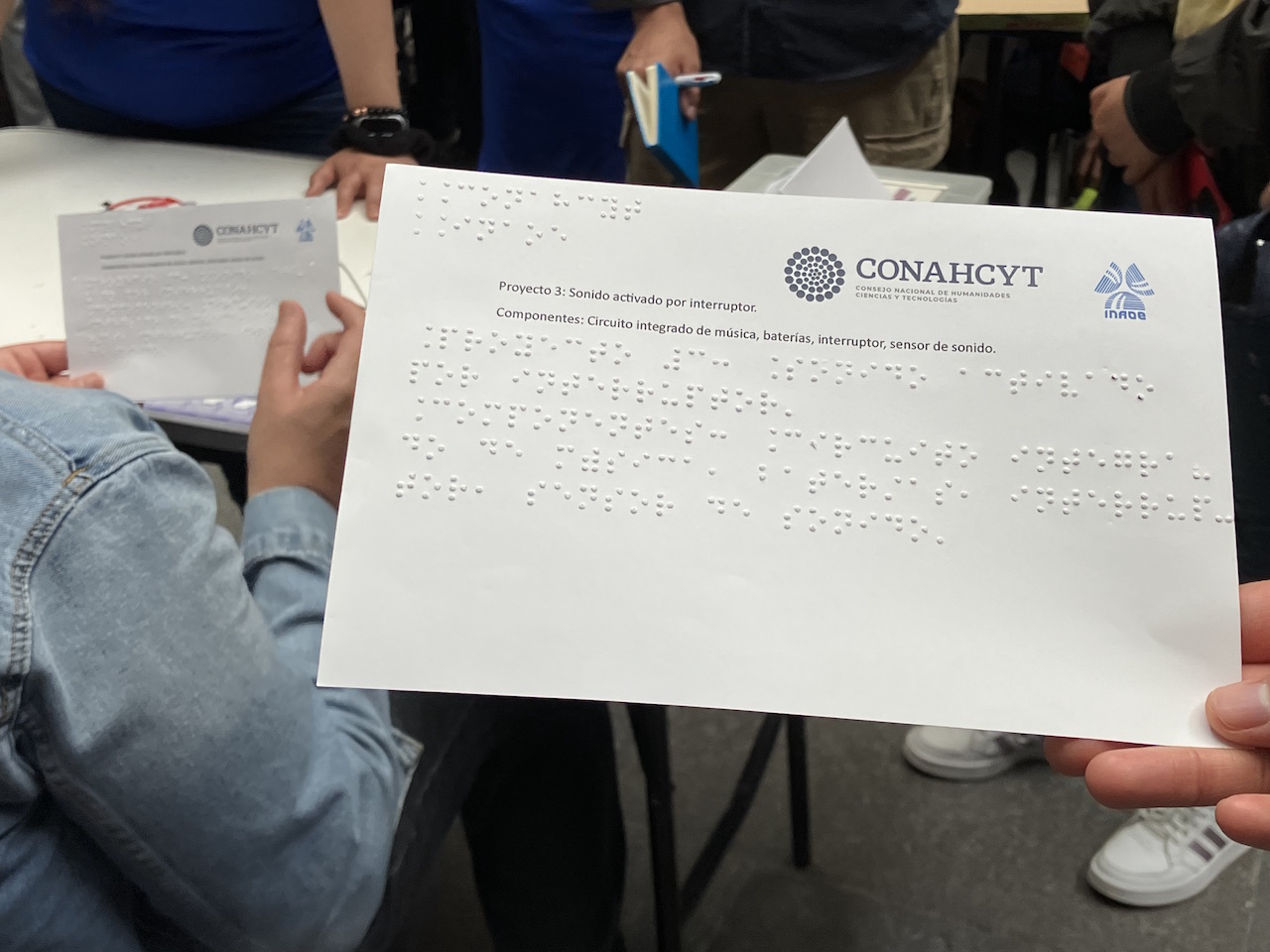
The opening ceremony was chaired by Mtra. Liliana Ortiz Pérez, honorary president of DIF Puebla, who said: "Scientific education is important for children and adolescents, since it helps them create critical thinking, analyze situations, solve problems and generate a genuine interest in knowledge. This are vital elements for the development of social skills. I celebrate that science, technology, engineering and mathematics leave the classroom and the laboratory and go into the streets, neighborhoods and public spaces like today when I was excited to see the zócalo full of science”.
Finally, Lic. Matías Rivero, Secretary of Well-being of the Puebla City Council, pointed out that the Municipal Palace is the home of all the people of Puebla and thanked the organizers of the event for giving the students the opportunity to learn.
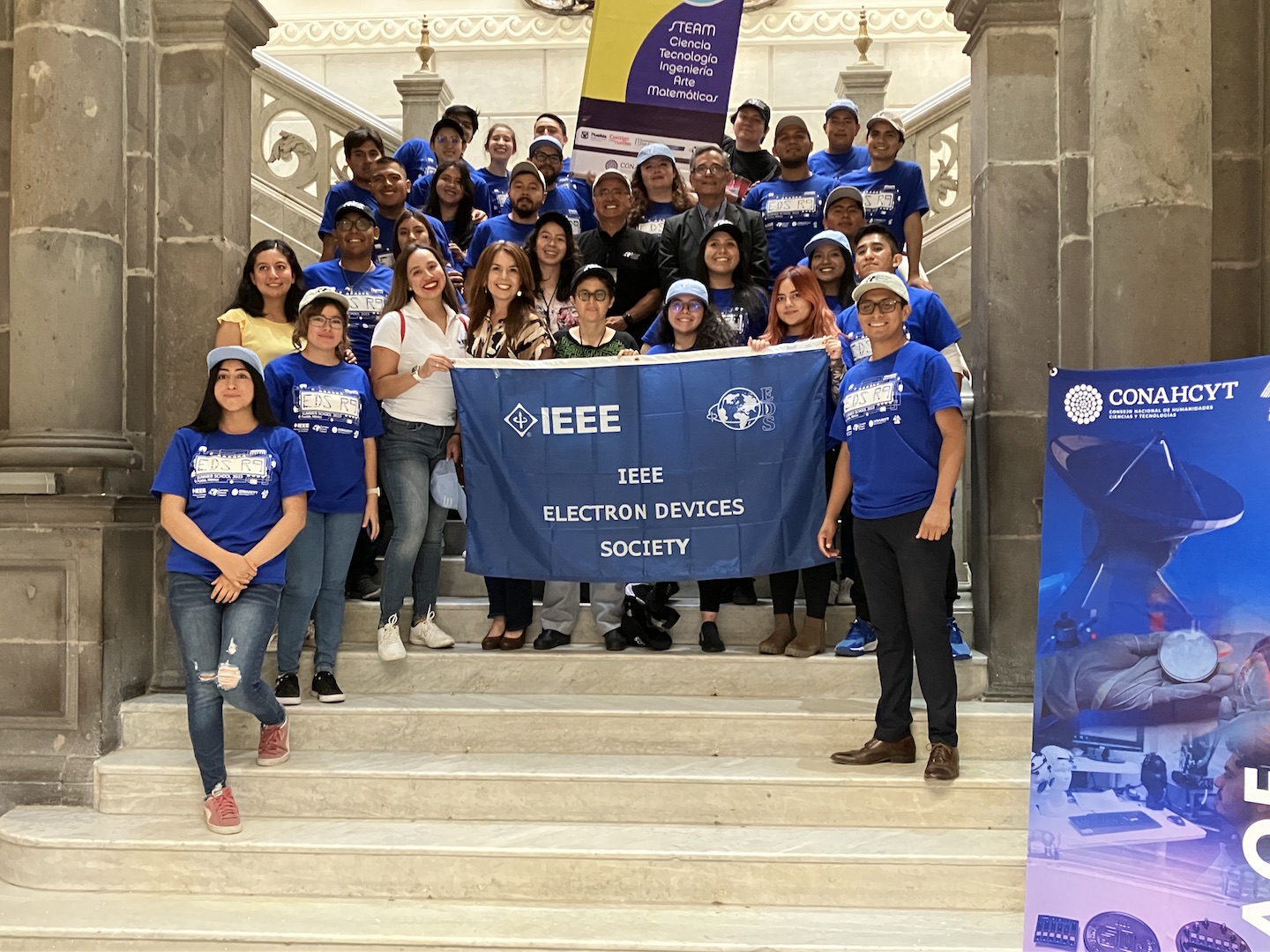
Luis Enrique Erro # 1, Tonantzintla, Puebla, México, Código Postal 72840, Tel: (222) 266.31.00, difusion@inaoep.mx
This work is licensed under a Creative Commons Attribution-NonCommercial-NoDerivs 2.5 Mexico License.


